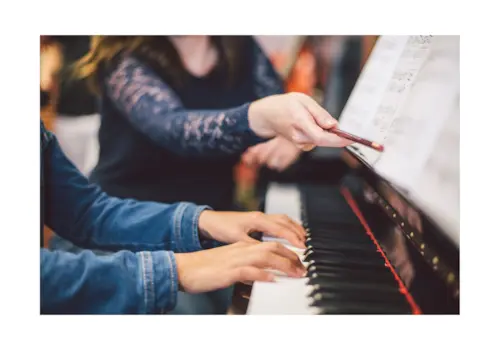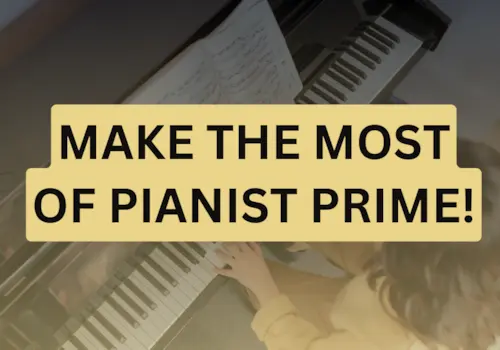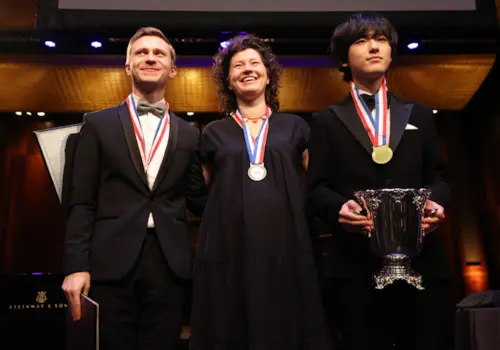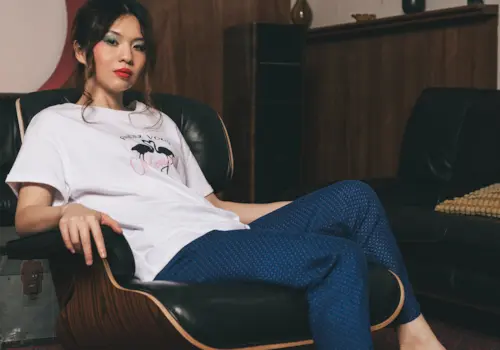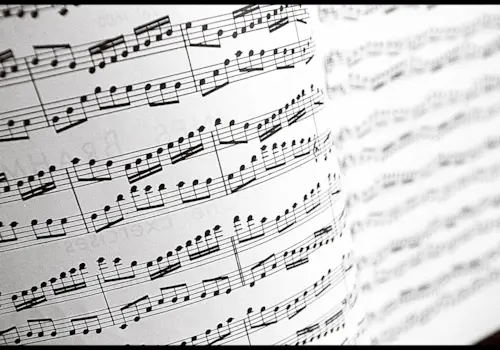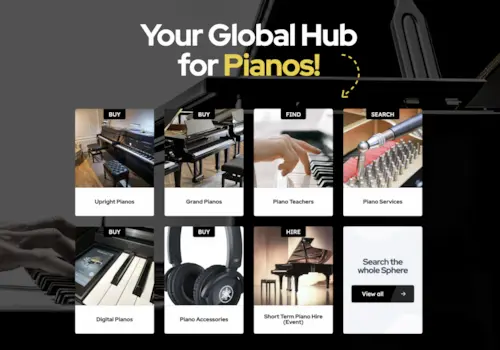After coming out as transgender in the 1990s, the American pianist was suddenly shunned by friends and colleagues in the industry, losing out on many career opportunities in the process. Fast forward two decades and she finds herself in a more accepting world; a world where she is able to offer support to other LGBTQ+ musicians who may be going through something similar. We had the honour of chatting with her about her journey to self-acceptance, why the classical music industry needs to change, why she felt she was always destined for a life at the piano, and her enthusiasm for highlighting the works of lesser-known composers...
Why did you choose to become a pianist?
I have always said that people never choose music as a career; rather, music chooses them. That is to say, music is a calling. And that properly infers that something spiritual is in the mix.
But dedicating oneself to music is also like sports, in that usually it must be done at quite a young age (as for skaters or tennis players). In my case, I was four years old when my first piano teacher, the Hungarian composer-pianist Veronika Wolf Cohen, came to our suburban Baltimore house and picked me up by my tiny hands and placed me in her lap, at the keyboard. After listening to me play all of my older brother’s piano pieces (mostly by ear but also reading the notes), she asked me what I wanted to be, when I grew up. I told her, “a piano player and a pig farmer.”
It was my young mother who wished for my brother and I to have a larger world than the one in which she and my father had grown up. We were rather poor (though I didn’t realise it at the time), and my mother was raised in a traditionally restrictive Catholic manner – ordained to be a doting wife and mother, nothing more, nothing less. But she loved all forms of culture and filled our little house with good books, reproductions of art masterpieces, and above all music on the radio and phonograph. We probably owned about 20 LPs in total – all of them terrific.
I was only three or four years old when my mother noticed me standing still in front of our living room radio every weekday afternoon at 4:30pm, to hear the programme that started with Mozart’s Marriage of Figaro Overture. I learned to tell time from that string opening. That was when she began to beg Miss Wolf to teach me piano. Fortunately, I never had to resort to pig farming as a back-up profession – though I still love pigs and enjoy drawing them in cartoons. Only recently I discovered that my beloved teacher, the great Czech pianist Rudolf Firkuŝný, also loved pigs as a child. How I regret not getting to talk about that, with him.
You had plenty of competition success early on in your career. Do you feel that competitions can be a real boost-up for pianists?
I am a great believer in history and tradition, often to my own detriment, and in the 1970s when I attended Juilliard it was common wisdom that a pianist built a career by studying hard, succeeding at school, entering and winning piano competitions, then playing a fine New York recital and being hired by a big manager. In fact, all of these things happened for me. But it never blossomed into some kind of ideal career à la Van Cliburn, the man we all dreamed of becoming.
It’s a very good thing that such mouldy thinking about career-building has come to an end. In terms of piano competitions, there is no question in my mind that entering many of them gave me a basic training in terms of how to play on a major stage under great pressure. The finest of these for me educationally was the 1983 Queen Elisabeth Competition of Brussels, Belgium (I placed 9th). It took a full month to transpire, with some 250+ contestants, two elimination recitals, and a final round for which one must prepare a daunting solo and concerto programme along with learning a new work within the space of a week. Then comes the final concert itself that was in the Royal Concert Hall in front of the Queen of Belgium and a jury consisting of Paul Badura-Skoda, John Browning, Claude Frank, Rudolf Firkuŝný, Emil Gilels, Angelica Morales von Sauer, Mitsuko Uchida, and others. When it all came to a merciful end, I was just 23 years old but had learned that I had the confidence and ability to handle pretty much anything that came my way.
In 1984, I won the Gina Bachauer International Piano Competition, and two years later was the highest-ranking American in the Tchaikovsky Competition in Moscow (a bronze medal). To my colleagues and fellow pianists, these were noteworthy achievements. But in the great scheme of my life and career in music, they altered my path very little.
The best thing about those competitions — indeed, any competition — is that it enabled me to work hard towards a goal, and to be heard. Any time you are on a stage, you can benefit from those opportunities. This is something I tell my own students, all the time.
Do you feel there are any issues with the modern day competition set-up?
These days the worst problem with the competitions are the juries themselves. When I discuss various competitions with students who want to enter them, I am just bewildered to see juries on which the vast majority and often total number of adjudicators consists of teachers from various institutions who have had limited or even no concert experience whatsoever. Not to demean the pedagogic profession, but that is a great mistake. I think the young pianists who play to such juries are well aware of being judged on hitting right notes, not on exploring creativity on a high artistic plain. I hear it in the performances of young people all the time – so little awareness of how to make a rich, singing tone, how to craft a phrase, how to shape architecturally, how to interpret a work of great challenge; or even simply exploring the vast keyboard repertoire.
Just the same dip into the standard pool of well-known 19th-century classics, usually played too fast, too loud, and with machine-like fingers.
Audiences attend concerts to connect with emotion, to be entertained by an engaging stage personality, and to enjoy communion with their own artistic soul. Too many pianists today are largely well-trained in a craft that they alone comprehend — and for which in the larger population there is very small interest.

"The best thing about those competitions... is that it enabled me to work hard towards a goal, and to be heard. This is something I tell my own students, all the time."
In the late 1990s, you began your transition from male to female. What was the response like from those in the industry?
To be a transgender person is to be someone who is largely misunderstood, and still to this day, often vilified. This is an experience quite common to many minorities, alas.
When I reached an emotional breaking point in the late 1990s and decided to embrace my true gender identity, I crossed a bridge from the majority world of assumed privilege of a young white male, to a new environment where I was seen as a damaged individual. To many, I was perverted, and many of the friends and colleagues I had relied upon for years simply shunned me. How all of this translated into career implosion for myself, I will never really grasp the full depth of.
In the most obvious sense, I lost a manager, a teaching position, concerts, colleagues, etc. And none of this was done with any insult to my face — just a simple, “well, I’m so sorry, we can’t work with you anymore.” Polite and civilised. That’s how the classical music business was. And is.
In a 2009 interview with The New York Times, Buechner reflects on her experiences of transitioning, as well as celebrating the 25th anniversary of her debut
What do you think needs to be done to make sure this kind of response doesn’t happen again?
Sadly, I would simply say – it has happened before, it will happen again, and it will always happen. Because humans are flawed, and judgmental, and seem to ascribe to a Caste System wherein their own given tribe is superior to others. That all comes from the most primitive form of survival.
Fortunately, I see a majority of young people in our larger American cities who seem quite committed to a better future where inclusivity is the norm. But the resistance is large and formidably supported, make no mistake about it. The United States has a near-majority of voters who view our country as a place that should have walls to keep out people of darker skin, non-heterosexual creation, non-English speakers, non-native-born people. Imagine what a horridly dull place such a country would be.
It may seem that I have veered off your question, which is centred upon the classical music world. But I view that world as a part of the larger sphere of human experience. I like to think that whenever I walk onto a concert stage, or speak to an audience, that my mere presence is making a statement – that I may be a different human creation than you have known or seen previously. But I have a heart, a mind, a spirit, and an urge to express myself in artistic ways. And what comes from my fingers and my heart is valid and worthy of hearing.
The more people like myself – and by that I mean minorities of: women, people of colour, people of disparate religions and languages and cultures, people of the LGBTQIA+ rainbow, people of discrimination or unusual challenges or hardships – that make themselves visible and audible, the more the world outside will morph in increasingly accepting and understanding ways. Which to my mind, is a very good thing for everyone.
Why do you think this industry in particular seems to be ‘behind the times’, as one would say?
Many of the older folks in the drivers’ seats of the classical music industry grew up in a time when concerts were well-attended and subscribed-to dress-up affairs for adults, given in an atmosphere of solemnity and near-worship of the people on stage. I think of the pianists who inspired me when I was young, and I can attest that I viewed them as near-Gods: Rubinstein, Horowitz, Arrau, Annie Fischer, Alfred Brendel, Paul Badura Skoda, my own teachers Byron Janis and Rudolf Firkusny. Musicianship is still, in my heart, next to Godliness. And yet the art of music itself is something of evanescence that belongs to everybody.
Sadly, there are people who do not view great music in this way, who probably prefer that museums and libraries are never free, that universities are only for the wealthy elite, that concerts and opera are exclusive members-only affairs.
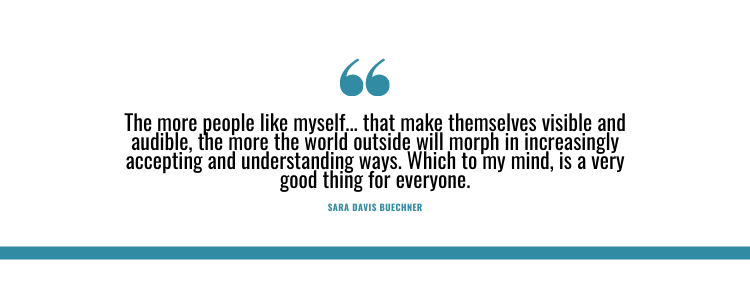
Quite obviously, classical music is “behind the times,” though that in itself doesn’t mean anything dire. Art museums full of Egyptian sarcophagi are behind the times too, but isn’t it crucial and wonderful that we can enjoy such ancient treasure. Mozart’s “Jupiter” Symphony is best experienced live in a concert hall with superlative acoustics, not piecemeal on YouTube. We must emphasise the importance of live performance in this time of addiction to handheld devices.
Where the poobahs of our industry are woefully inadequate, is in what they programme around Mozart’s Jupiter. Not simply adding Holst to the programme with a light show, but having performers speak to the audience, demonstrate excerpts, interact with artistically related projects, preparing rehearsals not only in the hall but piecemeal in schools and churches or any place that people congregate. And asking for feedback, too! Audiences love to feel that they are involved and participatory, not just stationery and listening to something they feel inadequate about. Listeners want to feel that they are vital parts of the classical performance experience, not just high-paying clappers in a dark cathedral of ancient spirits.
Every city in the United States of America has churches, libraries, schools, hospitals, gas stations, baseball teams, and municipal buildings. Orchestra halls, music schools, ballet companies, and recital venues should be viewed in the same way – as civic places where all are welcome and invited to share. Once an orchestra is viewed as an intrinsic part of a community, it becomes a precious commodity. This is how I view the survivable future of our art – that if it becomes vital and necessary, not to mention delightful and engagingly nourishing, then it cannot be discarded as a luxury for the few.
Do you feel like you are a role model in the industry for other musicians who can relate to your experiences?
I remember well, the first day of Autumn semester returning to the Conservatory where I was teaching in the 1990s, having said farewell the previous May wearing a suit and tie, and now wearing a dress and heels at an opening faculty reception. One of my colleagues approached me to say, “Boy, you got guts.” It was not a compliment. Soon afterwards, I heard from other people, usually students: “You’re so brave.” I didn’t feel brave, not one bit. I felt grateful to be alive. Because the agony of being a closeted transgender woman pushed me to the edge of complete mental breakdown and suicide.
20 years later, I’m spoiled, and have gotten used to hearing from people in a complimentary way, oh, you’re a pioneer, you’re a role model. I don’t take particular pride in that, but it’s an accurate description. And with that description comes responsibilities.
I recall a gay clergyman telling me about the discrimination and pain he had coped with when he came out in his youth, back in the 1980s-90s. He said, “That was the ticket that I punched, and that’s part of the price of that ticket. Don’t gripe, don’t complain. You bought that ticket.” Those tough-love words helped me cope with an awful lot of hardship in the years just after I transitioned.

"These folks often have very hard lives, coping with parents who discard them like garbage. If someone like me comes to town to walk onto a stage and be visible and proud, it’s a very big deal for them."
I am grateful to have survived into a time when I can be the role model that I myself needed, as a child. When I was six years old, going to elementary school for the first time, and simply baffled as to why I could not play with the girls in my class and share their games and secrets, I would have given anything in the world to have an adult say to me: “Are you a girl? If so, let’s make that right.” As simple as that. Every transgender person I’ve known, has had that firm self-definition from earliest memory. You know who you are. It’s the so-called wiser adults all around you who make it their business to let you know, that you are not you.
Anyway, back to the price of the ticket which, for me, includes speaking to trans groups, especially youth groups, when they contact me or my agent. It happens a fair bit when I travel for concerts. I make time for anyone who wants to meet me, and they get tickets for themselves and their friends to come and hear me play. Sometimes I even meet young people individually. These folks often have very hard lives, coping with parents who discard them like garbage. If someone like me comes to town to walk onto a stage and be visible and proud, it’s a very big deal for them.
You're particularly interested in championing the works of lesser-known composers. Why?
It may be a mirror of my own existence, but I have long been a champion of the musical underdog. That dates back to my Juilliard student days, when I was surrounded by other pianists playing so much repertoire. I had just turned 17 when I got to New York City, and immediately I was confronted with the fact that there was so much I did not know. And I sure was not going to learn it in the space of a weekly hourly lesson with my piano teacher.
Anyway, it occurred to me that one of the great resources of the Juilliard School was its magnificent library, and from my first days as a student there, I began to take out volumes of piano music every morning and spend one to two hours simply sight-reading through things. Thanks to residual German blood (“Büchner!”), I was very methodical about it. I began my sight-reading adventure with A for the Second Rhapsody of Isidor Achron, and finished up about two years later with Z for the Piano Concerto of Efrem Zimbalist (which was written for William Kapell, by the way). I’m proud to be able to say, I pretty much read through the complete piano music of the Juilliard Library. And I became a far better pianist for it, in manifold ways.

Isidor Achron (left), and Efrem Zimbalist. ©Wikimedia Commons
One of the things that stuck with me during that odyssey, was how much great music just was never played in concert. So many composers whom I had never heard of, indeed — like Jan Ladislav Dussek, or George Frederick Pinto, or Joaquín Turina, or Francisco Mignone, or Germaine Tailleferre, or… you get the idea. As I came to know the real breadth of the keyboard repertoire, I began to be astonished and then increasingly frustrated, that all I heard up and down those Juilliard halls was… Beethoven, Brahms, Prokofiev, and Rachmaninov. Great music, yes. But every programme? How much would you enjoy dining out if every meal consisted of steak, potatoes, spinach and apple pie with American coffee afterwards?
I started to acquire a penchant for looking “outside the box.” I still do. Right now, my passions are Spanish music (with an emphasis on Joaquín Nin-Culmell, a personal friend, and Federico Longás), Japanese music, Czech music as a legacy from my teacher Rudolf Firkusny (works of Martinu, Suk and Rudolf Friml), and as ever, Mozart. There’s a lot of Beethoven and Brahms that I love, and I have played music by those composers in concert, of course. But I don’t feel a sovereign duty to play those works a lot or to record them. There are so many pianists who do, and their music has been performed and recorded brilliantly! But Turina and Friml? If I don’t champion their great works, who will?
What's in store for you in these coming months?
In November I exhausted myself with five days of recording in Boston, for the Seven Elegies of Ferruccio Busoni; a collection of piano pieces by Longás and Nin-Culmell; a few pieces of my own composition; and the Six Etudes of Alfredo Casella. In the spring I’ll edit these performances and see how best to release them.
My last project of 2021 was a one-woman theatre show that I produced, scripted and starred in, called “Of Pigs and Pianos.” We had four shows from December 17 to 19, at a little experimental theatre in Manhattan called Theatre Lab, and it got a rave review in the New York Times from Anthony Tommasini. I think it’s one of the most significant artistic works of my life. With performances of nine pieces embedded into the show (by Mozart, Chopin, Longás, Busoni, Nishimura, myself and others), it tells the outline of my life as an emerging trans woman in words and music.

Buechner performs her one-woman show, "Of Pigs and Pianos", in New York. ©Rob Davidson
In the course of the play, I get to kneel and cross myself as at church, show off my great drawings from the age of five, climb on top of the piano, and sit in a chair as an analyst. It’s great fun, a good mix of comedy and drama, I think. As I worked on the show and shaped it with the help of a marvellous director named Sal Trapani, I began to see manifold ways in which its message could be inspirational — first as a recital of wonderful music; also as a personal history through a dark and dramatic time in our own nation’s history; and also as a story of support and inspiration not only for trans folk but for anyone who has had to emerge as different (or “queer”) in a world of wrenching conformity and societal expectation.
The theme of the show is Shakespearian — “to thine own self be true.” And shapes itself as variations on that theme, always coming back to the simple dictum: I am Me. And indeed, that’s all I’ve ever been, and all I’ve ever wanted to be.
As we enter the New Year of the Tiger, I hope to perform this show in many more venues. And to keep up a busy life of concerts, concertos, teaching, and other immersion into music. A blessed, fortunate life, at the age of 62 that I never dreamed I’d reach. I’m grateful for every single day of it.
All other images: ©Sara Davis Buechner
Keep up-to-date with Sara's upcoming performances and news here.

